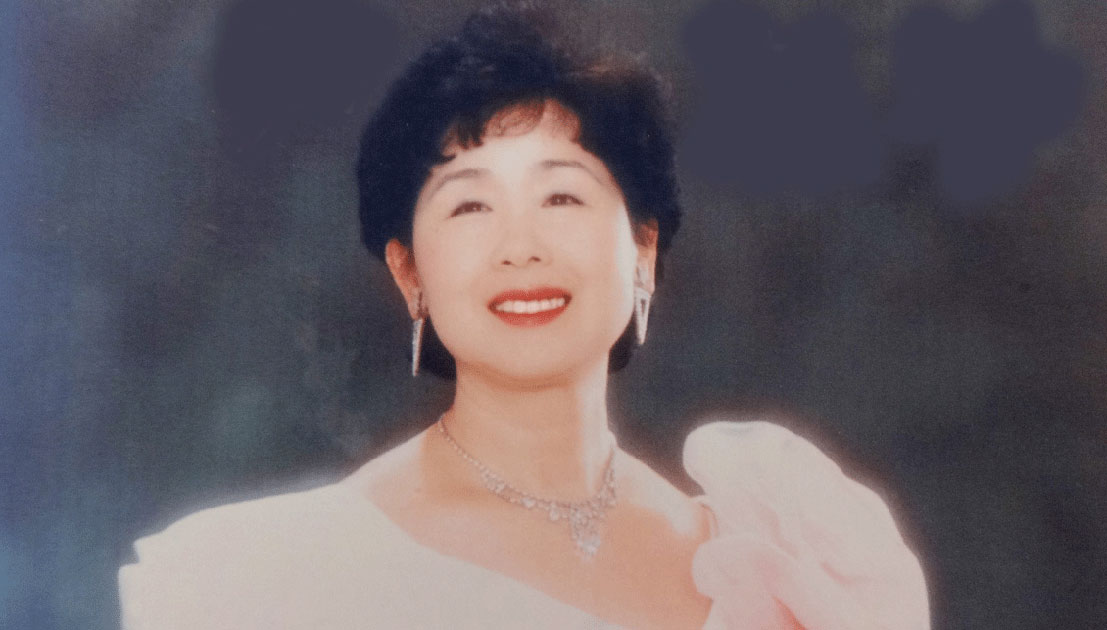Born in Tokyo, graduated from Kunitachi College of Music with a B.A. in Classical Vocal Music. As a student, she specialized in Italian opera arias and later studied chanson and canzone.
At the age of 20, she made her debut singing the theme song for a public radio singing program. She also sang soprano in a quartet at the chapel of the U.S. Fuchu Air Base in Tokyo. Since sight singing was required and that too in English before the audience, many of her colleagues could not meet the demand and were forced to quit one after another. However, she was able to stay on until the end, which gave her confidence and led to her subsequent opportunities.
In her third year of college, she formed and became the leader of the double quartet “Chor Acacia”. Their talents were recognized; and made regular appearances on a number of popular singing shows, collaborating with many stars. At these programs, she often sang solos as well, and she had many fans of her own.
After her marriage, she retired from show business for a while; but resumed her singing career after a 10-year hiatus. While giving recitals in various places in Japan, she regularly appeared in dinner shows at top hotels and music festivals. She also served as a radio personality on several programs, showcasing a wide range of activities.
Overseas, she gave recitals in Madras (now Chennai), India, in August and December 1979, sponsored by the Consulate-General of Japan in Madras and the Madras Music Society, respectively. In early 1980, a radio recital was broadcasted by All India Radio, Madras.
In 1987, the 10th anniversary of the restoration of diplomatic relations between Japan and China, Ashi’s song “Goodbye Hangzhou” (music and words by Minoru Endo) was released by King Records at the request of Minoru Endo, the composer of the Japanese song popular in China; “Kitaguni no Haru(Spring in the North Country)”, who was pleased with Ashi’s singing voice. In November, at the invitation of the Chinese government, she gave recitals in Beijing and Hangzhou. Soon “Goodbye Hangzhou” became a huge success in China, and Kyoko Ashi’s name became familiar throughout the country as “Lu Jingzu” (Chinese pronunciation of Kyoko Ashi).
While collaborating on stage with fellow musicians and dancers was an incomparable experience for her, she even received tremendous support from her Chinese fans who shared in the joy and enthusiasm of the performance. Ashi was called the “Messenger of Friendship between Japan and China” by those who understood that “music is a symbol of peace.”
In 1988, for “Goodbye Hangzhou,” Ashi became the first foreigner to be awarded the ‘Special Prize’ of the Hangzhou City Culture and Arts Festival by the city of Hangzhou. The following year, she received another “Special Award” at the 2nd Youth Culture and Art Festival in Ningbo for “Hello Ningbo” (lyrics by Haku Ide, music by Minoru Endo). Apart from these she received many other awards, and numerous special programs and features on her were produced and broadcasted on TV throughout China. However, in 1993, she stopped her musical activities due to health problems.
In appreciation of the people of China, she donated all proceeds from her concerts in China to the country.
Profile of Kyoko Ashi
 English
English
コメント